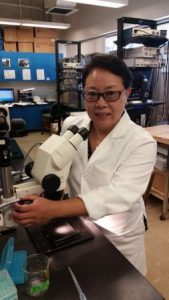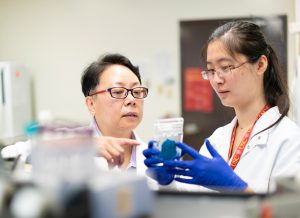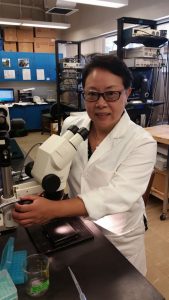Can pedialyte really cure a hangover?
Health | 01/29/2019
The short answer: No. The only real cure for a hangover is time, says Jing Liang MD, PhD, a professor at USC School of Pharmacy.
The longer answer: It’s possible Pedialyte could help quell a hangover faster than other so-called panaceas on the market, Dr. Liang says, but you shouldn’t rely on the beverage to improve the consequences of too much alcohol. “Recovery from a hangover is usually just a matter of time,” she says. “Most hangovers are gone within 24 hours.”...
Read More
The morning after: 82 labs evolves amid retail push
Bevnet | 11/19/2018
In anticipation of this expansion, 82 Labs has expanded its staff with several new hires. Lee said the company has built out its in-house product development team, which encompasses areas including regulatory compliance, quality control and formulation. The company has also previously partnered with researchers at the University of Southern California (USC) to fund studies on DHM, the natural flavanoid that serves as Morning Recovery’s functional ingredient. Dr. Jing Liang, MD, PhD, a professor at the school at USC who has published research on DHM, is a partner in 82 Labs...
Read More
Traditional Chinese hangover cure seen as potential Alzheimer’s disease treatment
USC News | 08/20/2018
Having shown the power of an ancient Chinese hangover remedy, Research Professor of Clinical Pharmacy Jing Liang is now determined to unlock the mysteries of its effectiveness. The answers she finds could lead to potential Alzheimer’s disease treatments and treatments for Parkinson’s, post-traumatic stress disorder, anxiety and more...
Read More
82 Labs Draws $10M in Investor Funds for Hangover Remedy
Los Angeles Business Journal | 04/18/2018
Lee was on a trip to Korea, he said, when he noticed locals downing locally made hangover drinks after a hard night on the town – and “showing up to work the next day ready to go.” He partnered with Dr. Jing Liang at USC Mann to create Morning Recovery for 82 Labs Inc., based on a compound found in a Japanese raisin tree...
Read More
Silicon Valley, intent on disrupting food, is now taking aim at hangovers
Quartz | 04/03/2018
But not many companies have partnered with universities to research their own tonics. During Lee’s trip to his home country of South Korea, he found that hangover cures were already an established, multi-million product category in Asia. He decided to bring the hangover cure back home, and began working with Dr. Jing Liang, a professor at the school at the University of Southern California (USC), whose research showed how the active ingredient in many of these drinks— a flavonoid from the fruit of the Japanese raisin tree (Hovenia Dulcis)— could counteract the effects of alcohol...
Read More
Chinese tree extract stops rats getting drunk
New Scientist | 01/09/2012
Soon, a preparation containing DHM will be tested for the first time in people. “I would give it to problem drinkers who can’t resist going to the pub and drinking,” says pharmacologist Jing Liang of the University of California, Los Angeles, who led the research team.
Read More
New drug lets you enjoy a drink without getting drunk, and wake up without a hangover - at least if you're a rat
Daily Mail | 01/06/2012
'When you drink alcohol with DHM, you never become addicted,' says the lead researcher, Jing Liang in research published in Journal of Neuroscience.
The drug appears to work by blocking a brain receptor. Other promising anti-alcohol drugs have targeted the same receptor - but also caused seizures.
Read More




